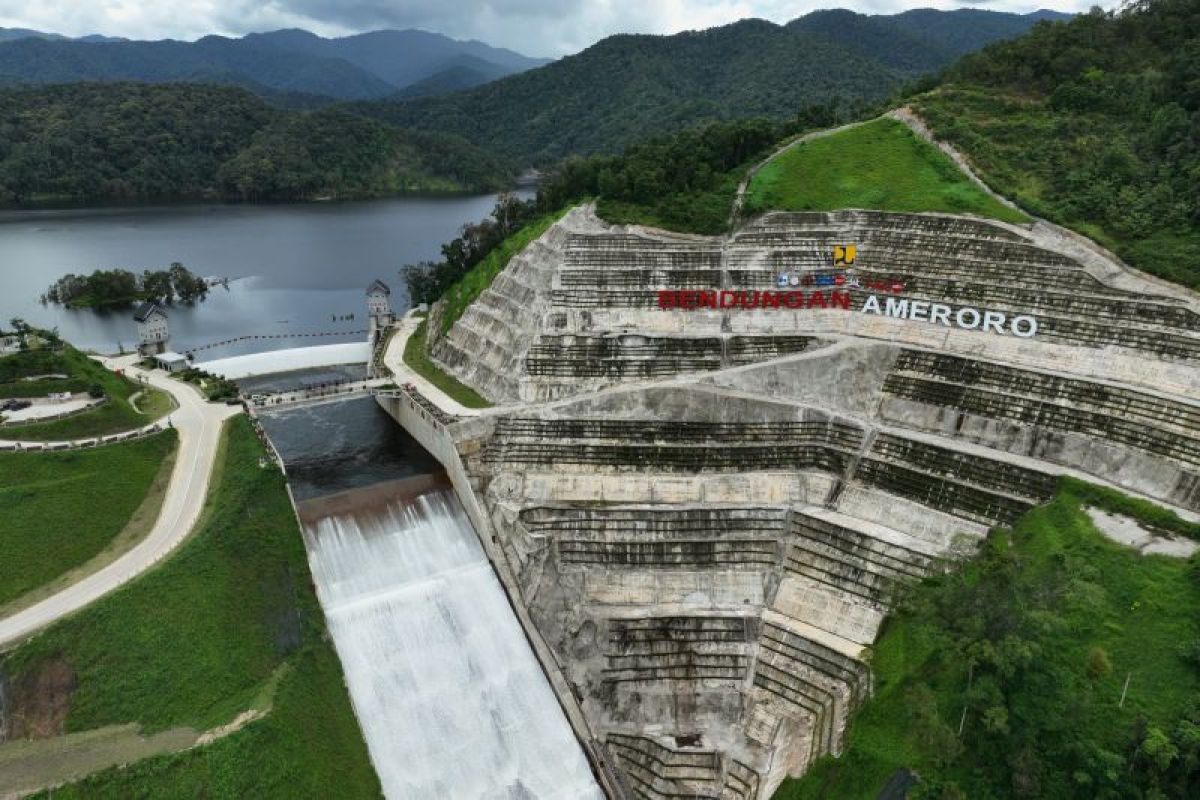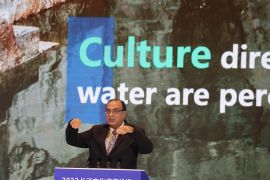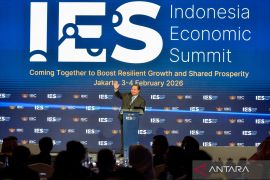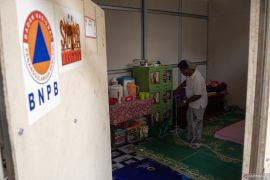Water is also key to achieving the Sustainable Development Goals (SDGs) Goal 6 on clean water and sanitation that supports almost every other goal, but especially Goals 1 and 2 on poverty and hunger.
However, the latest World Water Report under the theme of “Water for Peace and Prosperity” points out that due to climate change, seasonal water scarcity is projected to increase even where it is now abundant, such as in Central Africa, East Asia, and parts of South America. Water will become scarcer where supplies are already short.
Moreover, according to the UNICEF data, some 2.2 billion people still lack access to safe drinking water, and half of the global population does not have access to safe water and sanitation.
UNICEF also reported that 700 children under five die every day due to the lack of appropriate water, sanitation and hygiene (WASH) services.
In order to address those problems, between 2020 and 2024, UNICEF provided over 23 million people with climate-resilient water services and over 17 million people with climate-resilient sanitation services.
Nevertheless, meeting the demand for water for washing services and for other uses, including for agriculture and the industry, is becoming increasingly challenging.
One in 10 people live in countries with high or critical water stress, UNICEF said.
Related news: 570 mln children have no access to drinking water globally: UN report
Such a condition definitely needs a joint mechanism to overcome shared water problems faced by several countries around the world.
In fact, not all countries have the capacity to deal with water problems, especially some underdeveloped and developing nations, which makes a joint mechanism even more necessary.
For instance, the Fiji government has admitted that the country cannot carry out its own water development independently due to the Pacific island country's limitations, especially in terms of financing.
"We cannot develop it because we are limited, but with the global (water) fund where there is a 'pool' and we have the expertise, we have our people there who have experience in the field. We would be able to address it (the water issue), not only in Fiji but also for the other Pacific islands countries," Fiji's President Wiliame Katonivere stated in a special interview with ANTARA.
Since funding in water development requires large investments, funds from a country's public spending alone will not be sufficient to overcome water problems in a country.
Hence, this year's 10th World Water Forum can be a momentum to design a joint funding mechanism or blended finance for the development of water and sanitation infrastructure.
Moreover, the need for investment and financing in the water sector is huge, for instance, the water infrastructure alone is estimated to require funding of US$6.7 trillion by 2030, according to the UN.
Considering such a need, Indonesia initiated the formation of a global water fund as a joint mechanism for handling various water problems in all countries around the world.
Related news: Fiji expects 10th World Water Forum to realize water security for all
"In principle, the Global Water Fund is a global platform to be able to mobilize financing that can later help finance the water sector and water resources in a country (in need)," Director General of Infrastructure Financing of the Ministry of Public Works and Public Housing Herry Trisaputra Zuna stated.
The establishment of a global water fund is expected to bridge the large gap in financing needs for water development.
The Global Water Fund, if formed, will have coverage across all countries. Funds coming from donor countries will be mobilized to finance infrastructure in the water resources and sanitation sector.
However, the political will of countries and joint commitment of related stakeholders are some major challenges faced in the formation of this global water fund mechanism.
"Generally, building the commitment is certainly a major challenge, but in terms of togetherness, all countries share the same water issues. There is a large need but limited sources," Zuna pointed out.
Reflecting on the formation of a global pandemic fund that took about three years, he is optimistic that the global water fund will be formed, but he also expressed belief that the acceleration is deemed necessary for the formation of the water fund due to the existing large and urgent needs.
In the effort to solve water problems, the 10th World Water Forum held by Indonesia has at least become a forum to encourage other countries and related parties to see the need for a global water fund.
"This global water fund will be a collaboration that requires a joint commitment that invites all parties to have a common goal. If the goal can be formed and there is a sense of belonging and togetherness, then it can be more smooth for the formation of this fund in the future," Zuna said.
In addition to political will and joint commitment, another challenge for the formation of the global water fund, as a new global funding mechanism, is the commitment of governments of countries to be willing to prioritize and increase the water sector budget.
In this case, the challenge is that the need for investment and financing in the water sector is huge, but the global water sector currently attracts only less than two percent of the public spending, according to the World Bank.
"The water sector, perhaps, in my view, is the most under-funded sector in all economies of the world. There is no way you can talk about a new mechanism if governments still need to fix the way they allocate public budget," Saroj Kumar Jha, global director for the global water practice of the World Bank Group, remarked.
He highlighted that in most countries, especially underdeveloped and developing nations, the water sector is still the most underfunded.
"In fact, there are countries like the Democratic Republic of the Congo, which spend only two to three percent of their annual budget on water. However, they spend seven percent on agriculture, 13 percent on transport, and 26 percent on energy," he noted.
Jha also highlighted that most developing countries spend less than two percent of their annual budget on water.
According to the World Bank, such spending reflects how the water sector funding is prioritized in the public budget in most developing countries.
Furthermore, the investment requirement for improving water infrastructure and adequate sanitation is also very large, so the funds originating from the government alone would not suffice.
For this reason, global funding certainly requires non-governmental participation, such as from international organizations and the private sector.
However, the small amount of public spending in the water sector, as mentioned before, can be an obstacle in an effort to gain investment and the involvement of the private sector.
"Do not expect the private sector to come when you do not prioritize us. You got to lead the sector by having the right kind of policies (and) regulations, and of course, backed up by appropriate financing in the sector," Jha stressed.
Related news: World Bank asks countries to prioritize water sector budget
According to the World Bank global director, in some cases, the water private sector actually has been a minor player of the total spending in the water sector, and it is just only on water supply and sanitation.
Most players in the water sector in several countries are government agencies or state-owned enterprises, so it is necessary to create a level playing field for the private sector to come into the sector.
"Therefore, what is certainly needed is not just more money in the sector but what we need is more comprehensive reforms of the sector, a very clear water sector policy, a very clear set of institutional framework on how different parts of the governments come together in a country and a very well-functioning regulation, so that you can create a level playing field for the private sector," Jha elaborated.
By creating a level playing field, the involvement of the private sector is increasingly possible in the Global Water Fund in the future.
However, the process of forming this global water fund certainly still requires quite a long time since the design and details of the fund mechanism still need to be further studied and reviewed.
Hence, the 10th World Water Forum and subsequent forums can be a platform for various parties to design a well-done and targeted funding mechanism to realize the idea of "Water for Shared Prosperity."
Editor: Tia Mutiasari
Copyright © ANTARA 2024












